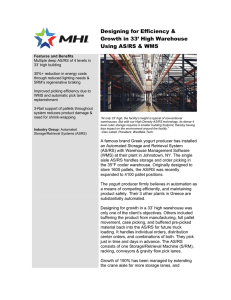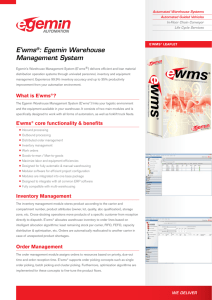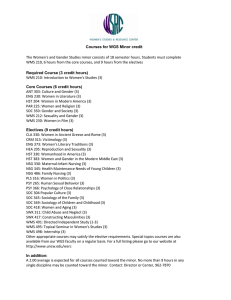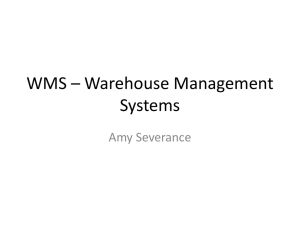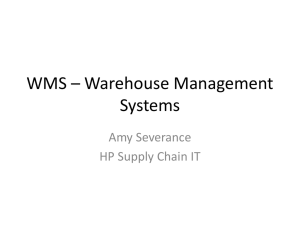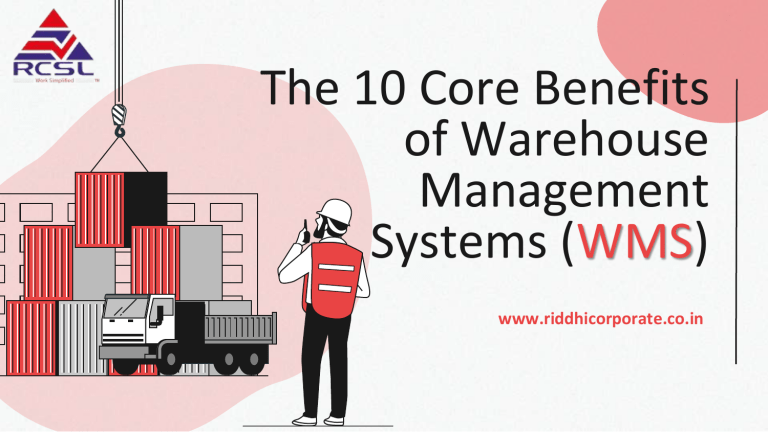
The 10 Core Benefits of Warehouse Management Systems (WMS) www.riddhicorporate.co.in What is WMS? A Warehouse Management System (WMS) provides inventory visibility and manages order fulfillment operations from distribution centers to Store self. The role of the WMS in 3PL Warehouse Management Services: In a warehouse or distribution center, a WMS helps manage fulfillment, shipping, and receiving task, including picking items from shelves for shipment or depositing goods received. WMS is to help users manage the fulfillment, shipping and receiving tasks in the warehouse or distribution center, such as picking goods from shelves for shipment or putting received goods away. WMS - It has been a well-known category of Supply Chain Software for more than 45 years. Nowadays, it is used in thousands, if not tens of thousands, of distribution centers around the world. While many companies, often large ones, remain new to WMS, RCSL continues to find them. Alternatively, there are stakeholders in a new WMS project who are unfamiliar with WMS, such as those from customer service or transportation. Supply Chain We found that reviewing the core benefits of an advanced WMS is useful even for managers with some WMS experience. - Here are RCSL’s top 10 Picks. 1) Inventory control by location, quantity, lot or batch, serial number, and more is a result of real-time, accurate visibility into all inventories in the warehouse. All of the inventory in multiple warehouses can be viewed centralized from one distribution center. 2) Optimal Warehouse Management Systems (WMS) will provide a comprehensive audit trail, which identifies who did what, when, and how. By utilizing this data, errors can be resolved more effectively and operational analytics can be performed more efficiently. 3) In most WMS implementations, barcode scanning and mobile terminals are widely used to drive productivity and accuracy in warehouse operations. 4) Smart sequencing will increase productivity in the distribution center with a WMS that provides system-directed activities. There are many tasks involved in this process, including putaway, cycle counting, order picking, replenishment, and truck loading. In order to assign work, there are three Ps: Permission, Priority, and Proximity. 5) Likewise, distribution centers are primarily responsible for picking and shipping orders to customers. This process can be improved through the use of tools such as: wave planning, multi-picking methods (discrete, batch, cluster, zone, zone-batch, etc.), dynamic slotting, and replenishment of forward picking areas. 6) Individual associate productivity tracking by task types and indirect and direct time will be possible with a WMS. 7) Using a WMS, comprehensive metrics and reporting can be aggregated across facilities and at the facility level. 8) In order to reduce transportation costs, a WMS should automate truck planning. 9) For a WMS to reduce or eliminate customer chargebacks, it should support customer compliance labeling and other services commonly seen in the retail sector. 10) In order to achieve continuous improvement and meet new distribution requirements, WMS should provide a platform to enable rapid changes in processes, work flows, and technology. Today, support for DC automation of many types is especially important. A variety of DC automation types are especially important today. You should expect these high 10 key benefits from a new WMS. You can Contact Us to learn more about WMS opportunities. With 3PL Warehouse Management Services, RCSL excels in meeting any business requirements for a high quality and special supply chain. Its Third Party Logistics Services (3PL) include receiving goods, stocking in warehouse, ordering, warehousing, packing and shipping. You can find us at @RCSLIndia & sales@rcspl.net SOURCE : https://3plwarehousemanagementservices.wordpress.com/2022/09/29/the-10-core-benefits-of-warehouse-managementsystem-wms/
